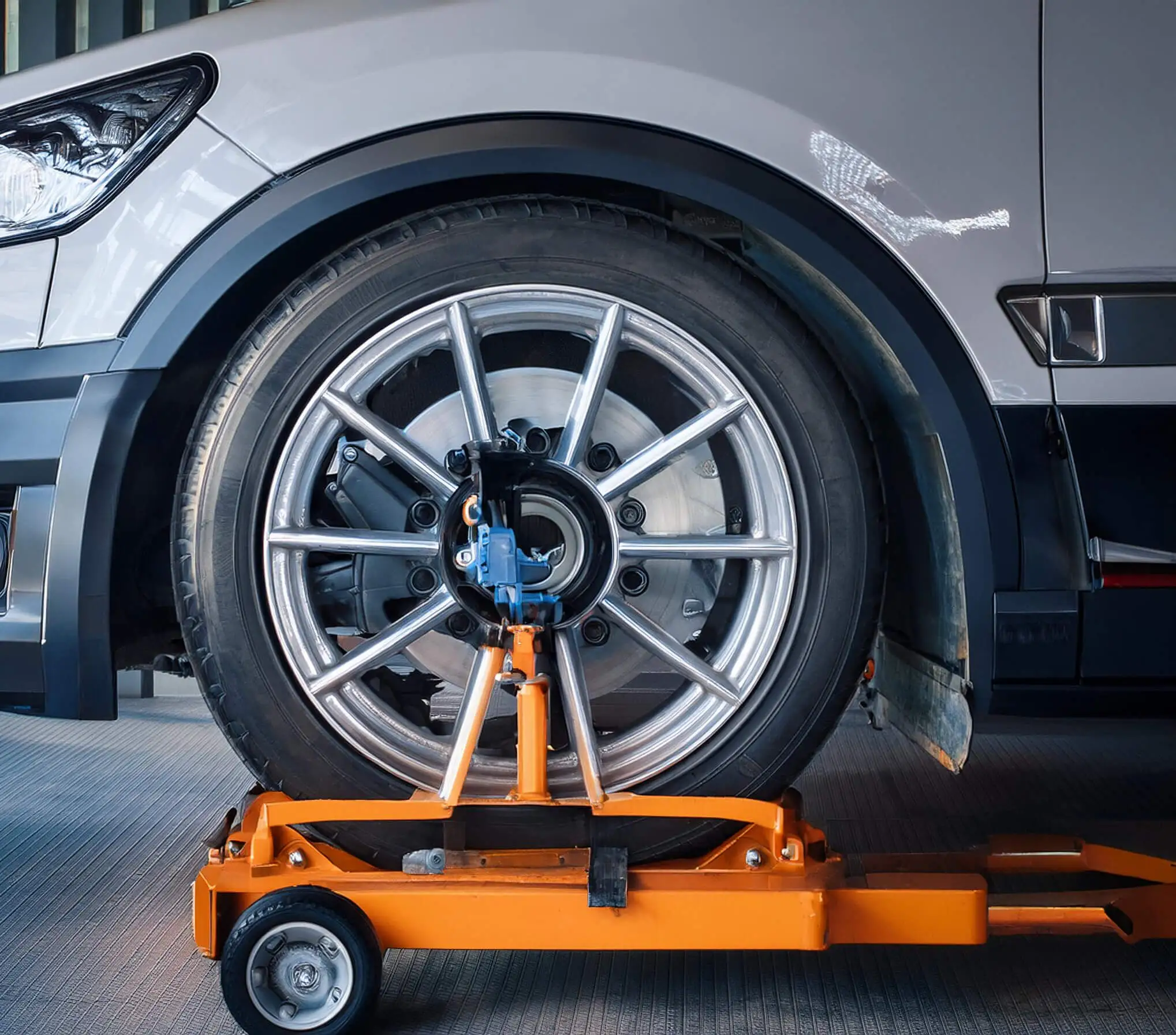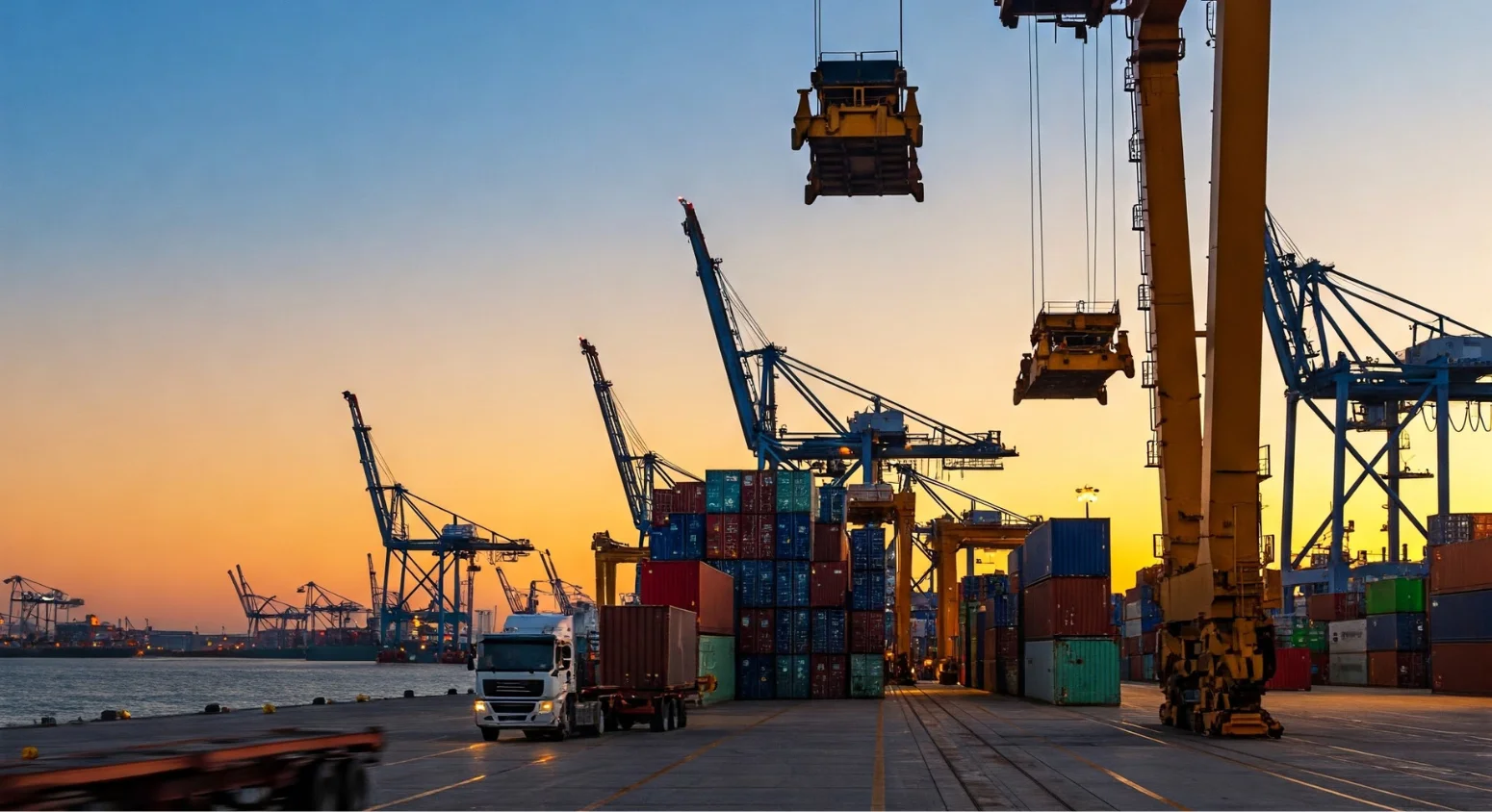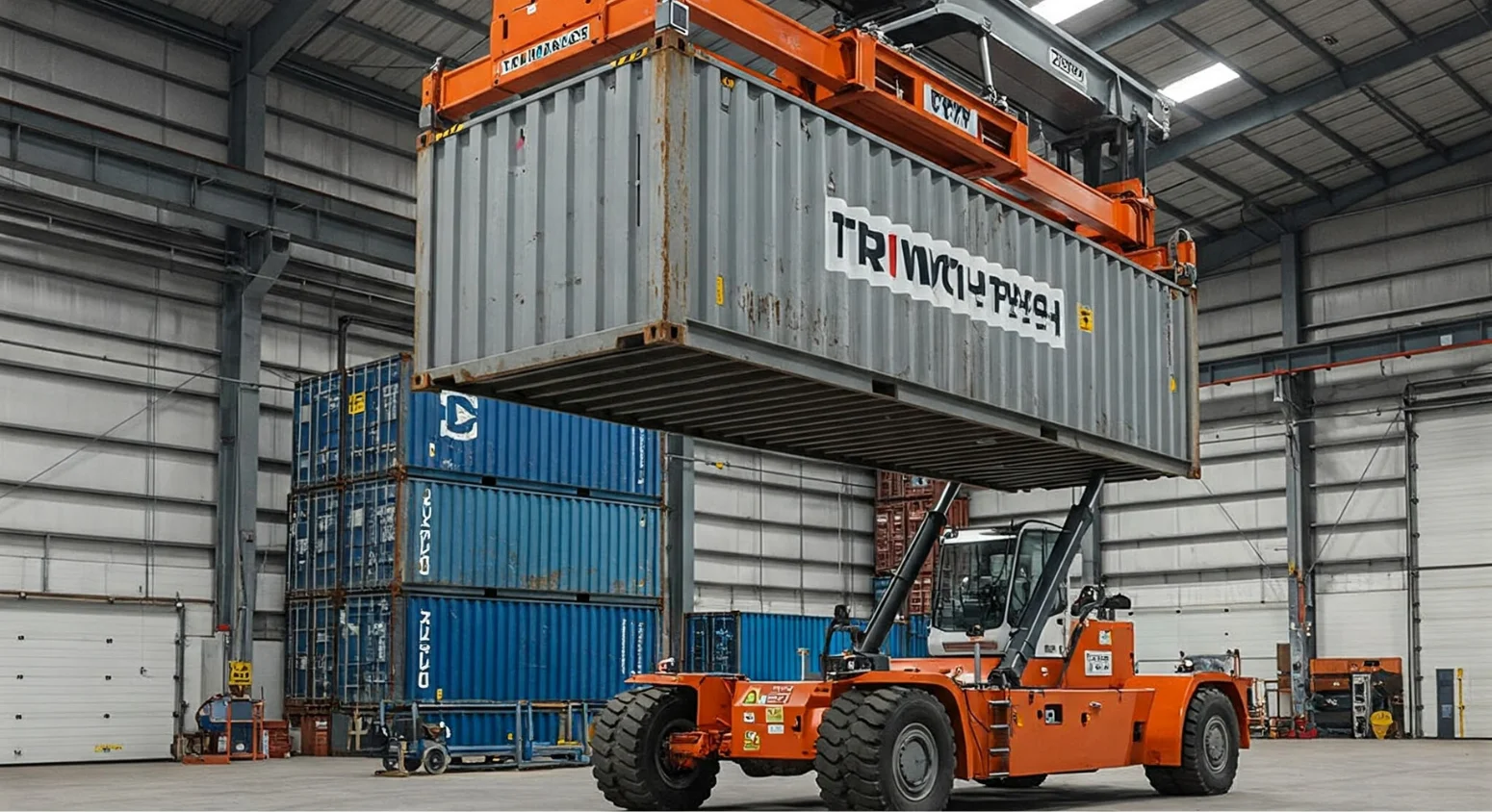Moving heavy equipment, vehicles, or shipping containers isn’t easy—unless you have the right dolly system. The right choice can save you time, reduce strain, and make transportation safer and more efficient. But with so many options out there—like vehicle wheel dollies and heavy-duty wheel dolly systems—how do you know which one is best for your needs?
This guide will walk you through everything you need to know before choosing a dolly system. We’ll cover the different types, key factors to consider, and tips to get the most out of your equipment. By the end, you’ll feel confident in picking the right dolly for the job. Let’s get started!
Understanding Dolly Systems
If you’ve ever struggled to move a heavy object, you know how important the right equipment can be. A dolly system is designed to make transportation easier, whether you’re moving vehicles, shipping containers, or industrial equipment. But not all dollies are created equal. Understanding how they work and what sets them apart will help you choose the best option for your needs.
What Is a Dolly System?
A dolly system is a wheeled platform or frame designed to transport heavy loads with minimal effort. Depending on the design, it can support anything from small equipment to oversized containers. Some are simple, while others come with specialized features like swivel casters, locking mechanisms, or heavy-duty frames for industrial use.
Key Benefits of Using a Dolly System
Why invest in a dolly system? Here are some major advantages:
- Increased Efficiency – Moving large or bulky items becomes much faster and easier.
- Reduced Strain – Instead of lifting or dragging, a dolly allows you to roll heavy loads, protecting your back and preventing injuries.
- Versatility – Whether you need vehicle wheel dollies for auto repairs or shipping container dollies for industrial transport, there’s a system built for the job.
- Enhanced Safety – Designed to provide stability, many dollies feature reinforced frames and heavy-duty wheel dolly systems to handle weight securely.
Common Applications Across Industries
Dollies aren’t just for warehouses or garages—they serve a wide range of industries, including:
- Automotive – Mechanics use automotive wheel dollies to move vehicles in tight spaces without starting the engine.
- Aviation – Airplane wheel dolly systems help transport aircraft parts and even small planes.
- Industrial & Shipping – Heavy-duty dollies support shipping containers, making it easier to relocate large cargo.
- Construction – Workers use dollies to transport large building materials safely and efficiently.
No matter the industry, choosing the right dolly system can make a huge difference in productivity and safety. In the next section, we’ll explore the key factors you should consider when selecting one.
Factors to Consider When Choosing a Dolly System
Not all dolly systems are built the same, and choosing the wrong one can lead to frustration, inefficiency, or even safety hazards. So how do you know which one is right for your needs? Whether you’re moving vehicles, heavy machinery, or shipping containers, there are a few key factors you should consider before making a decision.
1. Load Capacity: Matching Strength to Your Needs
The first thing to think about is how much weight your dolly needs to handle. Some systems are designed for light-duty tasks, while others—like heavy-duty wheel dollies—can carry thousands of pounds without breaking a sweat.
- For automotive work, a vehicle wheel dolly should be strong enough to support the weight of a car or truck.
- In industrial settings, look for shipping container dollies designed for extreme loads.
- Always check the manufacturer’s weight rating to ensure the dolly can handle your needs safely.
2. Mobility and Maneuverability: Navigating Tight Spaces
Will you be working in a spacious warehouse or a cramped garage? The size and design of your dolly system will determine how easy it is to move.
- Swivel casters allow for better maneuverability, especially in tight spots.
- Tire dolly wheels with smooth-rolling bearings provide effortless movement across different surfaces.
- Some single-wheel dollies are designed for precision turns, making them great for intricate positioning.
If you’re frequently moving vehicles in small spaces, automotive wheel dollies with 360-degree rotation can make the job much easier.
3. Surface Compatibility: Choosing the Right Wheels for Different Terrains
Not all wheels perform the same on different surfaces. A dolly that works well on smooth concrete may struggle on gravel or uneven ground.
- Auto dolly wheels are best suited for shop floors or garages.
- Heavy-duty off-road casters provide better traction on rough terrain.
- For delicate flooring, look for non-marking wheels that prevent scratches.
Matching your dolly’s wheels to the environment ensures smoother movement and protects both your equipment and the surface you’re working on.
4. Material and Durability: Ensuring Longevity
A high-quality dolly should be built to last. Cheaper models might save money upfront but could fail under heavy use.
- Steel frames offer maximum strength and durability.
- Aluminum designs are lightweight yet still strong.
- Reinforced plastic options provide a balance of durability and affordability for lighter loads.
If you’re investing in a heavy-duty wheel dolly, make sure it’s made from materials that can withstand repeated use without bending or breaking.
5. Safety Features: Stability and Accident Prevention
Safety should always be a top priority when choosing a dolly system. A poorly designed dolly can tip over, cause damage, or lead to injuries.
- Locking wheels prevent unwanted movement when loading or unloading.
- Low-profile designs improve stability, reducing the risk of tipping.
- Ergonomic handles make pushing and pulling easier, reducing strain.
When working with wheel dolly trucks or shipping container dollies, always double-check their stability and locking mechanisms to ensure safe operation.
Making the Right Choice
By considering load capacity, mobility, surface compatibility, material strength, and safety features, you can confidently choose the best dolly system for your needs. In the next section, we’ll dive into the different types of dolly systems and their best uses so you can find the perfect match for your specific tasks.
Types of Dolly Systems and Their Best Uses
Not all dollies are the same. Some are great for moving cars, while others handle massive shipping containers. Choosing the right one can make your job easier, safer, and more efficient. Let’s go over the most common types of dollies and when to use them.
1. Standard Dollies: The Everyday Mover
A standard dolly is what most people picture when they think of moving heavy objects. It’s a simple platform with wheels, perfect for general lifting and transport.
Best Uses:
- Moving furniture, appliances, and office equipment
- Transporting boxes in warehouses and storage units
- General lifting and moving tasks
These dollies are easy to use, but they’re not built for extremely heavy or oddly shaped items.
2. Wheel Dollies: Moving Vehicles with Ease
If you need to move a vehicle, wheel dollies are the way to go. These are designed to lift and roll cars, trucks, and even airplanes without hassle.
Types of Wheel Dollies:
- Automotive Wheel Dollies – Used in garages and repair shops to move cars easily.
- Heavy-Duty Wheel Dollies – Designed for bigger vehicles like trucks and SUVs.
- Airplane Wheel Dollies – Made for moving aircraft wheels and aviation parts.
- Single-Wheel Dollies – Great for precise positioning of heavy objects.
Best Uses:
- Repositioning cars in tight spaces
- Moving heavy machinery in workshops
- Transporting airplane parts in hangars
If you’re looking for a reliable option, TriWich Wheel Dollies provide excellent support, durability, and ease of use. They’re built for tough jobs and make moving vehicles a simple task.
3. Pallet Dollies: A Warehouse Must-Have
Pallet dollies are commonly used in warehouses to move stacked goods quickly. Unlike forklifts, they’re small, easy to maneuver, and work well in tight spaces.
Best Uses:
- Moving bulk goods in storage facilities
- Transporting heavy loads across smooth floors
- Assisting with shipping and logistics operations
If you need something that rolls smoothly on various surfaces, consider models with heavy-duty off-road casters for better grip and control.
4. Shipping Container Dollies: Built for Heavy Loads
If you need to move large containers, shipping container dollies are your best option. They are designed to handle extremely heavy loads, making it possible to transport containers without cranes or forklifts.
Best Uses:
- Relocating empty or full shipping containers
- Moving large cargo in ports and warehouses
- Supporting industrial and construction transport needs
For anyone in logistics, a wheel dolly truck designed for containers can improve workflow and save time.
5. Specialty Dollies: Custom Solutions for Unique Needs
Some jobs require unique solutions. Specialty dollies are designed for delicate, oversized, or irregularly shaped items, ensuring safe and easy transport.
Best Uses:
- Moving fragile or high-value equipment
- Transporting bulky or oddly shaped objects
- Supporting industry-specific transport needs
Choosing the Right Dolly for Your Job
The right dolly makes any moving task easier, whether you’re working in a garage, warehouse, or construction site. If you need a reliable option for moving vehicles, TriWich Wheel Dollies offer top-tier performance, durability, and ease of use. In the next section, we’ll cover tips on how to use your dolly system safely and efficiently.
How to Choose the Right Dolly System for Your Needs
With so many dolly systems available, how do you know which one is right for your job? The key is understanding what you need to move, where you’ll be using it, and how often. Let’s break down the factors that matter most when selecting a dolly system.
1. Identify What You Need to Move
Not all dollies are built for the same purpose. The weight, size, and shape of what you’re moving will determine which type is best for you.
- For vehicles: Automotive professionals should consider vehicle wheel dollies to maneuver cars in garages or tight spaces.
- For shipping containers: If you’re handling large cargo, shipping container dollies are designed to support heavy loads with stability.
- For general lifting: A standard or pallet dolly is ideal for warehouses, retail spaces, and industrial sites.
If you’re moving vehicles frequently, TriWich Wheel Dollies are a solid option. They provide durability and ease of movement, especially in professional settings.
2. Consider the Weight Capacity
Weight capacity is one of the most important factors when choosing a dolly. Using one that isn’t strong enough can lead to damage or even safety risks.
- Light to medium loads: A standard dolly can typically hold a few hundred pounds, making it perfect for furniture, boxes, and office equipment.
- Heavy-duty loads: If you’re moving cars, machinery, or shipping containers, look for a heavy-duty wheel dolly with reinforced materials and high load-bearing capacity.
- Extreme weight loads: Industrial applications may require specialized dollies with heavy-duty off-road casters for added durability.
3. Think About Mobility and Maneuverability
A dolly’s wheels and design affect how easily it moves, especially in tight or uneven spaces.
- Smooth indoor floors: Auto dolly wheels or standard casters work well on concrete and tile.
- Outdoor or rough terrain: Heavy-duty off-road casters help navigate gravel, dirt, and uneven surfaces.
- Tight spaces: Single-wheel dollies provide better control and maneuverability in small areas.
4. Look for Durability and Build Quality
A dolly system is an investment, so durability matters. Pay attention to materials and construction.
- Steel frames offer long-lasting strength, perfect for industrial use.
- Aluminum is lightweight yet sturdy, great for mobility and everyday use.
- Reinforced wheels ensure smooth movement and prevent damage under heavy loads.
5. Match the Dolly to Your Industry
Different industries require different types of dollies. Choosing the right one can improve efficiency and safety.
- Automotive repair shops benefit from automotive wheel dollies for moving cars effortlessly.
- Aviation industries need airplane wheel dollies for relocating aircraft wheels.
- Logistics and warehousing operations require shipping container dollies for heavy freight.
Making the Right Choice
When selecting a dolly system, consider what you’re moving, where you’ll use it, and how much weight it needs to support. If you need a reliable solution for moving vehicles, TriWich Wheel Dollies provide a strong, easy-to-use option designed for durability and efficiency.
Conclusion: Choosing the Right Dolly Makes All the Difference
Picking the right dolly system isn’t just about moving heavy things—it’s about making your work easier, safer, and faster. Whether you’re shifting cars in a garage, transporting shipping containers, or handling warehouse goods, the right dolly can save you time and effort.
Think about what you need to move, how much it weighs, and where you’ll be using it. Vehicle wheel dollies are perfect for auto shops, shipping container dollies handle large cargo, and heavy-duty wheel dollies support big machines.
If you need a strong and reliable dolly, TriWich Wheel Dollies are a great choice. They’re built tough and designed to handle heavy loads with ease. A good dolly isn’t just a tool—it’s an investment in efficiency and safety.
FAQs
1. What’s the best dolly for moving a car?
For moving cars, automotive wheel dollies are the best choice. They let you roll vehicles smoothly, even in tight spaces. TriWich Wheel Dollies are a solid option for durability and ease of use.
2. Can I move a fully loaded shipping container with a dolly?
Yes, but you’ll need a shipping container dolly designed for heavy loads. Always check the weight limit and make sure the ground is stable before moving a loaded container.
3. Do I need special wheels for rough surfaces?
If you’re working on gravel, dirt, or uneven floors, heavy-duty off-road casters will help. They roll smoothly and provide better control in tough conditions.



